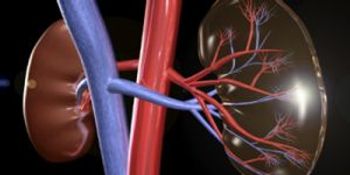
Smoking cessation outreach programs are effective for disadvantaged patient populations.

Smoking cessation outreach programs are effective for disadvantaged patient populations.

Pharmacists with long lengths of pharmacy service are more willing to cooperate with physicians.

Among hospital staff, pharmacists report better health behaviors and more participation in workplace health promotion activities than nurses.

Many patients do not fully understand the risks of unnecessary antibiotic prescribing.

Pregnant patients most often consult with pharmacists and other health care professionals on medications for psychiatric disorders and infectious diseases.

A collaborative, pharmacist-led intervention targeted at health care professionals improves statin prescribing and lowers the risk of atherosclerotic events in patients with cardiovascular disease.

Providing preconception care for pregestational diabetes mellitus in women of reproductive age could potentially save up to $5.5 billion in health expenditures.

Researchers find that negatives from daily aspirin outweigh the positives.

Patients with bipolar disorder and other mental illnesses are more likely to be tested for human immunodeficiency virus.

Obesity can deprive adults of nearly 20 years of healthy life and up to 8 years of life expectancy.

Many psychotropic medications prescribed to patients with first-episode schizophrenia do not comply with current treatment guidelines.

In healthy women, the cons of taking daily low-dose aspirin to prevent heart disease, cancer, and other serious illness outweigh the pros.

Bariatric surgery patients may require vitamin A supplementation to avoid ophthalmic complications.

Researchers from the Karolinska Institutet have dismissed the idea of a causal link between antibiotic use in early life and childhood asthma.

Vitamin D supplements can reduce the severity and duration of chronic obstructive pulmonary disease flare-ups by more than 40%.

Skipping college seems to contribute to prescription painkiller abuse.

Enrollment in a pharmaceutical care program conducted by a pharmacist can improve health-related quality of life in women with epilepsy, according to a recent study published in Health and Quality of Life Outcomes.

Well-trained pharmacy technicians can free up pharmacists' time for osteoporosis management services by identifying patients who do not require pharmacist intervention.

Excess medical costs for diabetes and lost productivity amounted to more than $322 billion in 2012, a 48% increase from the $218 billion estimate for 2007.

Of the 1.2 million Americans with human immunodeficiency virus in 2011, 70% did not have their condition under control.

Community chain pharmacies vary in the barriers they face when implementing programs to improve medication therapy management.

Patients with bipolar disorder who are treated with lithium have a higher risk for long-lasting kidney damage and thus require rigorous monitoring.

Vitamin D deficiencies are causally associated with increased mortality rates.

Based on patient response rates and efficacy, olanzapine/fluoxetine is the ideal first-line treatment for depression caused by bipolar disorder.

The prices for brand-name prescription medications commonly used by older adults increased by an approximate average of 13% last year, more than 8 times faster than the general inflation rate.

More than 40% of calls placed to US poison control centers concerning energy drinks involve children under age 6, some of whom suffer serious cardiac and neurological symptoms.

Implementing eye screening via telemedicine among patients with diabetes uncovered that 1 in 5 have diabetic retinopathy.

Further research is needed to pinpoint a technician-to-pharmacist ratio that best ensures patient safety and quality care.

To ensure medication adherence among ethnically diverse elderly patients, senior care pharmacists must consider their cultural perspectives.

Pharmacist-based nutrition support teams play a crucial role in correcting vitamin deficiencies in hospitalized patients.